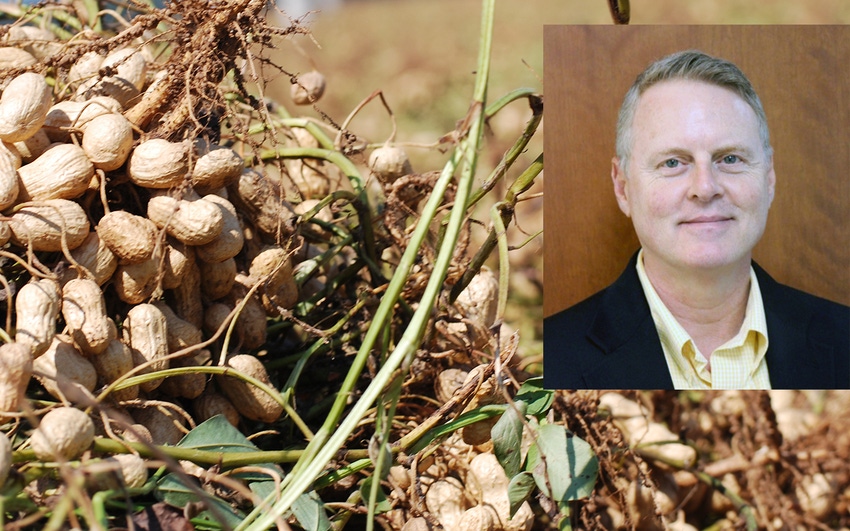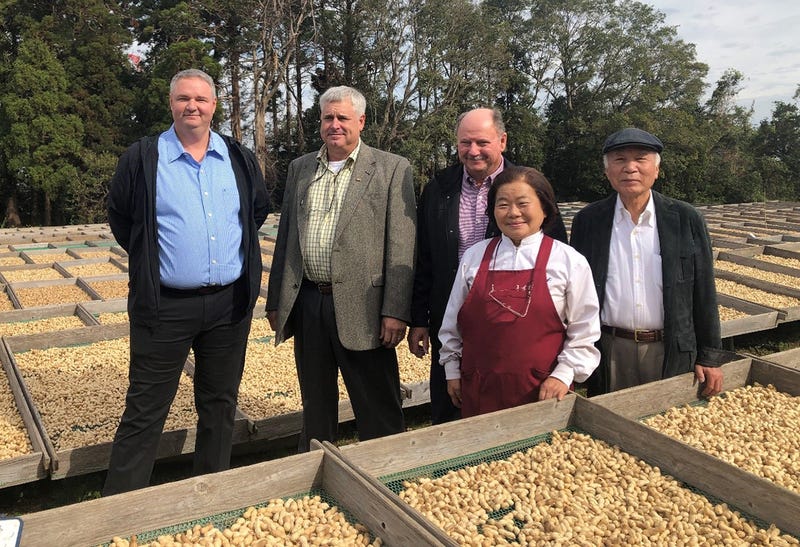
U.S. peanut farmers can take pride in the reputation they have earned across the country for providing a reliably safe, nutritious food staple consumers take solace in, particularly during times of crisis. But the industry needs a unifying voice to bolster and expand that reputation both domestically, and, evermore strategically, on the global stage.
The American Peanut Council has spearheaded that voice for decades, and it is celebrating its 80th birthday this year. We felt it was a good opportunity and time to touch base with APC, which maintains offices in several countries but is headquartered in Washington, DC, and so is Patrick Archer, the APC president.
 (EDITOR'S NOTE: This is the fourth installment of the Farm Press 2020 peanut series sponsored by AMVAC called "Going off the Farm." The series looks at some of the activities, initiatives and people working on behalf of the U.S. peanut industry, well, off the farm.)
(EDITOR'S NOTE: This is the fourth installment of the Farm Press 2020 peanut series sponsored by AMVAC called "Going off the Farm." The series looks at some of the activities, initiatives and people working on behalf of the U.S. peanut industry, well, off the farm.)
Archer and his staff were remotely working just outside the capitol due to the coronavirus pandemic in mid-May when we sat down, virtually speaking, to talk about APC activities and some opportunities and challenges the U.S. peanut industry faces. Here's a Q&A based on that conversation:
Southeast Farm Press: Patrick, it's good to talk to you again. Can you reacquaint us with the American Peanut Council's unique role(s) within the U.S. peanut industry?
Archer: APC is the umbrella trade association for the U.S. peanut industry and is the only organization that represents all segments including growers, shellers, manufacturers and goods and services providers. We are the industry organization that contracts with USDA to receive export promotion funding on behalf of the industry.
We carry out these programs to identify trade barriers and opportunities, address technical issues, interact with governmental and non-governmental bodies that affect trade and work with foreign manufacturers to use and promote U.S. origin peanuts in their products.
On the domestic side, we come together as an industry to address common issues such as food safety, sustainability, promotion of government purchases of peanut products, and packaging and handling. We follow issues critical to the industry and act as the spokesperson for the industry. APC also organizes industry meetings, including the International Peanut Forum every two years to provide a forum for networking and meeting to work on these issues.
And Peanut Research Foundation is also under our umbrella and funds production research to improve productivity at the farm level, which benefits the whole supply chain.
SEFP: Patrick, you have been with APC for more than three decades. How has the council changed or shifted its approach, mission or strategies if at all, during that time? There have been many accomplishments, but over that time can you give me one or two accomplishments you have been most proud of for the council?
Archer: Yes, over my 33 years at APC things in the peanut world have certainly changed. One of the biggest changes was the transition from a supply management farm support program to one that is market oriented. Production expanded and shifted to more productive land and opportunities increased in the export arena. Exports now make up 25 percent or more of the crop annually and the world market is far more integrated.
I am most proud of how our industry came together in 2009 during the Peanut Corp. of America massive food recall which threatened the future of the industry. The industry came together to address the misinformation and fear consumers had for our products and turned around a huge drop in sales, which quickly rebounded and have been growing ever since with U.S. per capita consumption at an all-time high. In addition to reinforcing food safety as our highest priority, I am also proud of the way our export program has evolved to focus on the trade and technical challenges we face in order to keep exports growing.
SEFP: What makes U.S. peanuts unique on the global marketplace?
Archer: There are many countries that grow peanuts, but most are consumed inside the country where they are produced. Only a few countries export peanuts, including the United States, Argentina, China, India and Brazil. Those five countries count for most of the world’s peanut trade. U.S. peanut farmers follow some of the strictest regulations in the world for managing pesticides and consider food safety all the way down to the farm level. Our post-harvest processes and procedures are also among the best in the world as well, and our productive seed varieties means U.S. peanuts are competitive in the world market on price.
SEFP: What are some of the locations and opportunities for U.S. peanuts to bolster or expand its market share? What are the challenges and opportunities?
Archer: Our main markets for exported peanuts currently are Canada, Mexico, the European Union, China and Japan. Canada and Mexico represent almost half of all U.S. peanut exports. Even though those markets could be considered mature, sales continue to grow as consumers enjoy peanuts more than ever.
Most peanuts sold outside the U.S., are eaten as salty snacks, although Canadians eat as much peanut butter as Americans. APC is constantly on the lookout for new market opportunities and is currently considering the economic growth and opportunity in Southeast Asia and the Middle East, where sales of peanut products are growing, from a small base, as potential new markets.
SEFP: How, if any, is the current pandemic affecting APC's current or future strategies to promote U.S. peanuts overseas?
Archer: The pandemic has certainly curtailed some of our planned activities in the short-term such as traveling to meet with customers and government officials, host the now postponed International Peanut Forum and participate in other international trade shows and meetings. However, I do not think the pandemic will impact our overall strategies for export promotion longer term. We have pivoted to some online activities, such as an online cooking workshop in Japan featuring peanuts and peanut butter. We also manage our overseas programs with local staff and contractors, so even though traveling to markets regularly is preferred, business can continue in the short term.
SEFP: You and your staff coordinate logistics for and host trade and promotion trips for the U.S. peanut industry, including taking U.S. peanut farmers to tour other countries. Can you give us one or two ‘memorable’ experiences from those trips?
Archer: There is no better way to see what the APC does in a foreign market than to visit in person. Unfortunately, it isn’t practical or financially feasible to bring as many farmers on foreign trips as we would really like — but when we get to host them it is always a valuable experience.
Farmers appreciate seeing their dollars at work, and the fruit of their hard work in a supermarket in another country. We try to visit peanut fields in markets where that is possible, such as China and Japan. Both of those countries grow peanuts, but also import them from the U.S. to meet demand. When a peanut farmer meets another, no language is necessary. The shared love of working on the land is connection like no other.

The American Peanut Council coordinates logistics for and hosts trade and promotion trips for the U.S. peanut industry, including taking U.S. peanut farmers to tour other countries. From left, John Gray, Williston Peanuts from Florida; Mark Kaiser, peanut farmer from Alabama and Andy Bell, peanut farmer from Georgia with Mr. and Mrs. Masuda, peanut farmers from Chiba, Japan in November of 2019. (Photo courtesy of American Peanut Council)
About the Author(s)
You May Also Like






